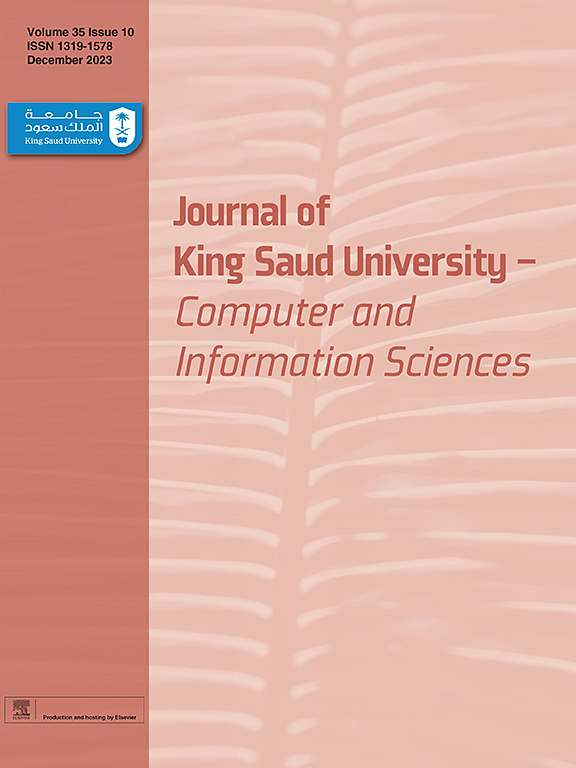IPSRM: An intent perceived sequential recommendation model
IF 5.2
2区 计算机科学
Q1 COMPUTER SCIENCE, INFORMATION SYSTEMS
Journal of King Saud University-Computer and Information Sciences
Pub Date : 2024-10-05
DOI:10.1016/j.jksuci.2024.102206
引用次数: 0
Abstract
Objectives:
Sequential recommendation aims to recommend items that are relevant to users’ interests based on their existing interaction sequences. Current models lack in capturing users’ latent intentions and do not sufficiently consider sequence information during the modeling of users and items. Additionally, noise in user interaction sequences can affect the model’s optimization process.
Methods:
This paper introduces an intent perceived sequential recommendation model (IPSRM). IPSRM employs the generalized expectation–maximization (EM) framework, alternating between learning sequence representations and optimizing the model to better capture the underlying intentions of user interactions. Specifically, IPSRM maps unlabeled behavioral sequences into frequency domain filtering and random Gaussian distribution space. These mappings reduce the impact of noise and improve the learning of user behavior representations. Through clustering process, IPSRM captures users’ potential interaction intentions and incorporates them as one of the supervisions into the contrastive self-supervised learning process to guide the optimization process.
Results:
Experimental results on four standard datasets demonstrate the superiority of IPSRM. Comparative experiments also verify that IPSRM exhibits strong robustness under cold start and noisy interaction conditions.
Conclusions:
Capturing latent user intentions, integrating intention-based supervision into model optimization, and mitigating noise in sequential modeling significantly enhance the performance of sequential recommendation systems.
IPSRM:意图感知顺序推荐模型
目标:序列推荐旨在根据用户现有的交互序列,推荐与用户兴趣相关的项目。目前的模型无法捕捉用户的潜在意图,在用户和项目建模过程中也没有充分考虑序列信息。此外,用户互动序列中的噪声也会影响模型的优化过程。方法:本文介绍了一种意图感知序列推荐模型(IPSRM)。IPSRM采用广义期望最大化(EM)框架,在学习序列表示和优化模型之间交替进行,以更好地捕捉用户交互的潜在意图。具体来说,IPSRM 将未标记的行为序列映射到频域滤波和随机高斯分布空间中。这些映射降低了噪声的影响,提高了用户行为表征的学习能力。通过聚类过程,IPSRM 捕捉到了用户潜在的交互意图,并将其作为监督之一纳入对比自监督学习过程,以指导优化过程。结果:在四个标准数据集上的实验结果证明了 IPSRM 的优越性。结论:捕捉潜在用户意图、将基于意图的监督整合到模型优化中,以及在顺序建模中减少噪声,都能显著提高顺序推荐系统的性能。
本文章由计算机程序翻译,如有差异,请以英文原文为准。
求助全文
约1分钟内获得全文
求助全文
来源期刊

Journal of King Saud University-Computer and Information Sciences
COMPUTER SCIENCE, INFORMATION SYSTEMS-
CiteScore
10.50
自引率
8.70%
发文量
656
审稿时长
29 days
期刊介绍:
In 2022 the Journal of King Saud University - Computer and Information Sciences will become an author paid open access journal. Authors who submit their manuscript after October 31st 2021 will be asked to pay an Article Processing Charge (APC) after acceptance of their paper to make their work immediately, permanently, and freely accessible to all. The Journal of King Saud University Computer and Information Sciences is a refereed, international journal that covers all aspects of both foundations of computer and its practical applications.
 求助内容:
求助内容: 应助结果提醒方式:
应助结果提醒方式:


